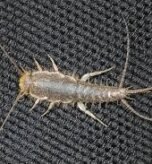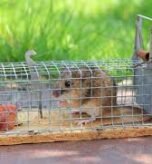The Virginia opossum is North America’s only native marsupial, a fascinating creature often found in habitats ranging from forests to suburban backyards. Their adaptable nature often leads to questions about their diet, especially a common one: can opossums eat dog food? This guide provides a professional and informative overview of the opossum’s natural diet, clarifies common myths, and outlines best practices for responsible coexistence.
Understanding the Opossum: Nature’s Resilient Scavenger
First, it is important to distinguish North American opossums from Australian “possums,” as they are different species. Virginia opossums are nocturnal and generally solitary. A notable trait is their naturally low body temperature, which makes them highly resistant to rabies. Despite their sometimes-intimidating appearance, opossums are docile animals that prefer to avoid conflict. When threatened, they often enter an involuntary comatose-like state known as “playing possum.”
Opossums play a vital ecological role as nature’s “sanitation engineers.” They consume dead animals and decaying plants, which helps prevent the spread of disease. Furthermore, their diet includes various pests like cockroaches, slugs, snails, rats, and even venomous snakes.
The Natural Diet of Wild Opossums
Virginia opossums are classic opportunistic omnivores, meaning their diet is broad and changes based on what is available.
Their natural diet includes:
- Insects and Invertebrates: These are a cornerstone of their diet, providing essential protein.
- Fruits and Berries: They eat a variety of seasonal fruits, which offer carbohydrates and vitamins.
- Small Animals: They consume amphibians, reptiles, mice, rats, and birds for protein and calcium.
- Carrion and Eggs: Opossums efficiently scavenge dead animals and raid nests for eggs.
The Real Story: Can Opossums Eat Dog Food?
While their opportunistic nature means they can and will eat dog food if it is accessible, the answer to “can opossums eat dog food?” is that it is not a healthy or safe choice for them, especially over the long term.
- Nutritional Imbalance: Commercial dog and cat foods are formulated for the specific needs of canines and felines, not opossums. These diets may contain excessive protein or vitamins that can be harmful to an opossum’s health and lead to conditions like Metabolic Bone Disease (MBD).
- Lack of Variety: A diet of only pet food fails to provide the diverse nutrients that opossums get from foraging in the wild.
- Potential for Obesity: Dog food is often high in calories, which can lead to weight gain and other health problems in opossums.
- Attraction of Other Wildlife: Leaving pet food outdoors can also attract other unwanted animals like raccoons and rodents, which can increase the risk of disease transmission.
Ultimately, while the answer to “can opossums eat dog food” is technically yes, it is a practice you should strongly discourage for the health of the opossum and the safety of your property.
Debunking a Common Myth: Opossums and Ticks
A pervasive myth, spread widely online, claims that opossums eat thousands of ticks per season, making them “superheroes” against Lyme disease. This belief originated from a 2009 lab study where captive opossums were observed grooming ticks off themselves. However, the researchers only assumed the ticks were eaten without verifying stomach contents.
A more recent and comprehensive 2021 study analyzed the stomach contents of 32 wild opossums and found zero ticks. This research decisively refutes the idea that ticks are a significant part of an opossum’s diet. Therefore, attracting opossums to your property for tick control is not an effective strategy.
Foods That Are Dangerous for Opossums
Certain foods are harmful to opossums and should never be offered to them:
- Dairy Products: Opossums are often lactose intolerant, and dairy can cause severe digestive issues.
- Onions and Garlic: These contain compounds that can damage red blood cells and lead to anemia.
- Junk Food and Sweets: Processed foods and sugary snacks are nutritionally inadequate and can cause metabolic problems.
- Raw Meat: While they eat carrion, offering raw meat can introduce harmful bacteria like Salmonella.
How to Coexist Humanely with Opossums
You should not directly feed wild opossums. Doing so can create a dependency on human-provided food and increase their comfort level around people, which can lead to conflict.
Effective deterrent strategies focus on eliminating attractants:
- Secure Your Garbage: Use tight-fitting, lockable lids on your garbage cans.
- Feed Pets Indoors: Do not leave pet food or water bowls outside, especially overnight.
- Keep Your Yard Clean: Promptly clean up any spilled food, fallen fruit, or birdseed.
- Eliminate Shelter: Remove brush piles and seal off access to spaces under decks and porches.
- Use Repellents: Opossums are reportedly repelled by spicy and strong scents like cayenne pepper, ammonia, or garlic.
What to Do If You Find an Injured or Orphaned Opossum
If you encounter an injured or orphaned opossum, you should immediately contact a local wildlife rehabilitation center or animal control. Attempting to care for a wild animal without proper training is often illegal and can be dangerous for both you and the animal. Professional rehabilitators have the specialized knowledge and resources to provide the appropriate care.
Conclusion: Respecting Our Opossum Neighbors
In conclusion, while the technical answer to “can opossums eat dog food?” is yes, it is not a healthy or appropriate diet for them. Responsible coexistence means refraining from providing artificial food sources and using humane deterrents to encourage their natural foraging behaviors. By understanding their ecological contributions and dispelling common myths, we can help foster a harmonious environment for all species in our shared ecosystems.



